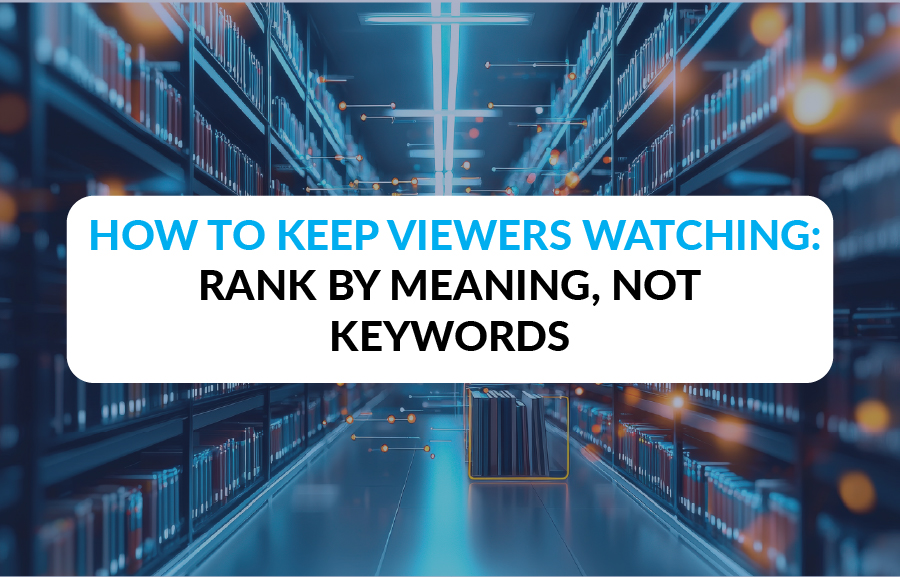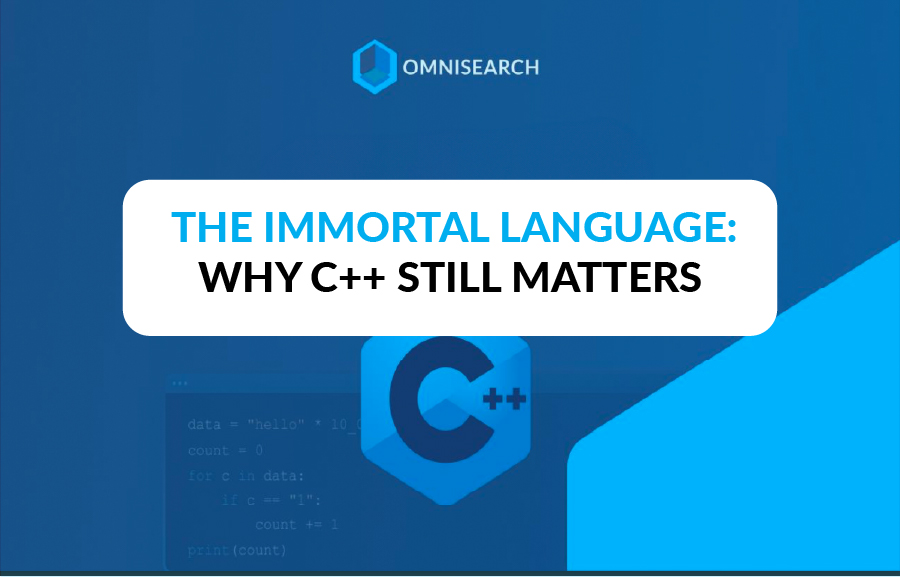The future of search algorithms - exploring the latest trends in search technology
No items found.
Published:
August 20, 2024
Topic:
Deep Dive

Recent Events
Nowadays, artificial intelligence (AI) has permeated all spheres of social, economic, scientific research and everyday life. The current spotlight is on generative artificial intelligence, which has the potential to change the world in the coming years, in terms of development, commercial and social perspectives.
AI tools can now generate completely new text, code, images or even videos. Within a short period, ChatGPT has emerged as a leading exemplar of generative artificial intelligence systems. The results are quite convincing - it is often hard to recognize whether the content is created by man or machine. Generative AI is especially good and applicable in 3 major areas – text, images and video generation.
Text generation as a tool is already being applied in journalism (news production), education (production of learning materials), law (drafting contracts), medicine (diagnostics), science (search and generation of scientific papers), etc.
.png)
Top 5 Trends in the Search Technology
The need to produce more-relevant results ignited the usage of AI-based tools that can be implemented within site search. AI and machine learning can analyze real-time factors such as browsing history, the intent behind the words used, and high-performing previous searches. Thus, by applying AI and ML the generated search results will be optimized and customer-centric. The leading trends of today’s search engines are listed as follows:
- Customer-Centered Search. To provide better customer experience, search results need to be relevant. It seems obvious, but it’s not easy to achieve. Keyword-based search is based on hand-written rules, keyword stuffing and web tagging. To get more relevant results for each query and improve the customer experience – you need to implement an AI-based search engine. AI can produce better results for different types of queries, such as compatibility queries, concept-style searches etc. By itself, AI search is very suitable for long (fat) queries, which can also be paired with keyword search. Machine learning algorithms such as reinforcement learning can automatically and continuously re-rank results to place the best items on the top, so AI-based search will definitely provide a better customer experience.
- Personalization. Personalization has been an important topic since 2003 when Amazon introduced recommendations in product search. According to Accenture, 91% of consumers surveyed said they are “more likely to shop brands that recognize, remember, and provide them with relevant offers and recommendations.” Personalization is customer-centric. AI-powered search will definitely bring the site visitors what they need, and this will help you to achieve better customer satisfaction, higher conversion rates, and increased revenues. An efficient search engine will display results that are personalized to individual users and their profiles / desires. Personalization is not only a business goal for growing sales, it’s also something consumers expect and want nowadays.
- Recommendations vs Relevance. Traditional search engines struggle with the recommendations. They generate dozens of search engine result pages (SERPs) full of links and you have to manually go through 1 or 2 webpages to identify your result. By applying AI tools, a user can form its query as a sentence and get the result he’s looking for without the need to visit other pages. This is a major shift in the search process - from a “questioning” (keywords) approach - to a more conversational search - providing direct answers to users questions, not just a list of links to webpages. Generative AI bots like ChatGPT and Bard can not only facilitate specific query-based searches for users, but they also offer recommendations.
- Social Content for Businesses. According to Gartner, 80% of online buyers are already using social media to help them make the right purchase decisions, and this trend will likely grow. Social media is a more casual, personal feel as opposed to traditional ads and will less likely arouse marketing suspicion. Each store has its own business profile on Facebook/ Instagram/ Twitter. On Facebook marketplace – buyers can find products being sold by independent sellers, residents nearby and local stores. Social media posts about your products could capture potential buyers’ interest and result in more sales. To improve your sales performance – your site search can include social posts about your products and services.
- Leveling-up Search. The future of AI-based search is beyond text form – it will also implement voice, and visual searches. The search engines that will include multiple search options - text, images, videos, etc., will emerge as the leaders in this space. Visual search tools can not only recognize product types (categories), but also additional details, e.g. the item’s physical features (shape, texture, background, etc.). This enables the retailers to provide very relevant search results that match exactly what a shopper is looking for, i.e. item’s particular details. Visual search can also perform object detection and identification in an image, and it can enhance e-commerce options with discovering new products.
.png)
What Does That Mean for Your Business ?
As search engines understand better the meaning of queries and people discover the benefit of AI-powered search engines, some industries can highly improve their position on the market.
The media websites are thriving today – from video news, to how-to tutorials – their content is ever-growing and changing. The visitors and video watchers can lose their path in a content-rich environment. AI-powered search can help them to find the sub-topic they need, and also to recommend similar relevant topics. Thus – they will remain regular visitors of the website.
Online buyers usually know what they want to buy, but sometimes have problems locating the desired product in the entire website. You don’t want them to get lost and navigate to another portal, due to the search issues. Therefore, it is evident that (especially in busy shopping seasons), an AI-powered search can enable your visitors a smooth online shopping experience.
Online education has picked up steam recently. After the pandemic era – many universities and course providers have moved their curricula / content materials almost entirely online. Online materials creators not only present the content in different forms – they can provide benefits via site search option over video tutorials, wikis, and knowledge bases. Students, attendees and employees will highly benefit if they have the possibility to perform AI-powered content searches.
How Can You Do Better than Your Competitors?
By enabling your site visitors to search, find, and buy with ease, you will get increased revenues. In essence, the future of search engines lies in creating a personalized and intuitive search experience where AI-driven algorithms proactively understand and cater to user preferences and needs:
- AI-powered search can provide product recommendations and personalized (customer-centric) experience on the site.
- Virtual shopping experience can be implemented that will display the searched item in different colors, or in different conditions (e.g. sofa bed in different virtual environments).
- Image recognition technology can assign tags to particular spots of the video and give those sections an attribute (description). Automating this process provides content metadata, and creates a robust infrastructure for both search and marketing.
- AI agents can be implemented that will match customers with products and can facilitate the transactions.
- The overall customer satisfaction will increase and the site visitors will smoothly convert into customers.
AI-powered search brings site visitors what they need, and this will help you to achieve better customer satisfaction, higher conversion rates, and increased revenues. An efficient search engine must display results that are personalized to individual users and their profiles / desires.
At Omnisearch, we offer an effective AI-powered site search tool of all types of content – audio, video and text (including PDFs). Omnisearch’s focus are educational and media portals. Students around the world benefit greatly from our tools that transcribe audio and video files into text, and perform AI-powered content searches, mapping results to exact seconds where they occur.
Another Omnisearch feature is that it performs site search analysis that helps uncover the visitors search habits on your website. The habits include which keywords and phrases have been searched for, and also - acceptance of search suggestions, thus providing invaluable insights into users behavior.
Here you can check out how to adopt Omnisearch and to implement the whole site search over text, PDFs, audio and video content. To kick-off the implementation of your own site search, you can start by contacting us for a quick demo.






